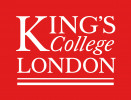© Pint of Science, 2025. All rights reserved.
We now know that human beings have trillions of good and bad bacteria living inside of them – could it be that they hold the key to good health? In the first evening of a series which concentrates on the human body, join us to hear how the microorganisms that are present in your gut at this very moment can either cause or prevent disease in both you and your future children.
You are what you(r mother) ate. Aren't you?
Dr. Caroline Ovadia
(Clinical Research Fellow in Translational Medicine, King's College London)
Historically, each generation was expected to live longer than its parents, yet with the current epidemic of obesity, our children may have a shorter life expectancy than us. Even before we are born, the environment that we are exposed to in the womb can affect our risks of developing adulthood diseases. This talk will explore how the mother’s gut microbes can affect their health in pregnancy, influencing the future health of the baby. We will discuss these changes in the context of a serious liver disease of pregnancy, and look towards treatments to prevent these problems for the mother and baby.
Food as Medicine
Professor Tim Spector
(Professor of Genetic Epidemiology, King's College London)
Despite thousands of diet books and advice from experts, the global obesity crisis is getting worse. Why? Dietary advice tells us to eat less fat, less sugar or less protein and yet most diets fail in the long term. However recent evidence shows that we all respond differently to the same foods and genes provide only part of the answer. We have been overlooking one vital aspect of diet that lies within us. Thanks to recent breakthroughs we have begun to examine the permanent residents in our guts: the trillions of microbes, bacteria and fungi who are crucial to our health.
Map data © OpenStreetMap contributors.
